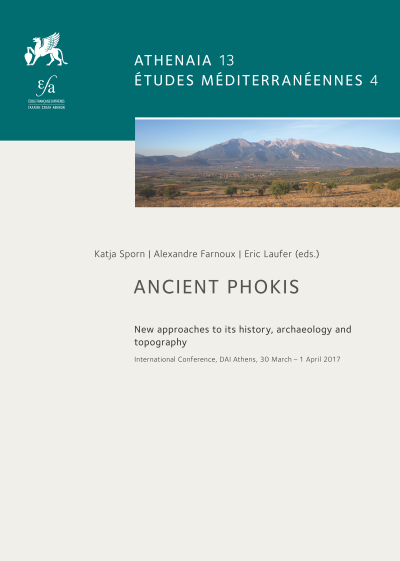Sites of memory in ancient Phocis: The Thessalian-Phocian battles, the Persian Wars, and the changing religious landscape
https://doi.org/10.34780/6o6d-6d75
List of Contributors
- Elena Franchi [Author]
Synopsis
Abstract After having defeated the Thessalians, the Phocians dedicated offerings at the sanctuary of Delphi and at Abae and founded the festival of the Elaphebolia to commemorate this victory at the sanctuary ofHyampolis. Whereas our earliest source on this war fails to mention the Elaphebolia and to recognise a key role for Hyampolis, the latest sources completely neglect the role of Abae in the story. This shift was driven by the changes in the religious landscape (and, in turn, maybe even affected the roles of Abae and Hyampolis as sites of memory). Indeed, in the 2nd half of the 4th century, the Phocians started to associate their memory of the battles against the Thessalians with the sanctuary of Hyampolis, which over time became the most important site of memory of the Phocian regional wars and thus functioned as a regional sanctuary, while Abae gradually turned into the repository of glocal memories relating to the Persian Wars.
Keywords Abae, Hyampolis, Elaphebolia, Thessalian-Phocian battles, Persian Wars




